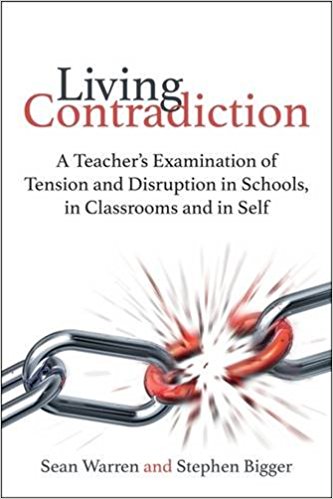Thursday 28 September 2017
Sue Cowley, The Artful Educator
The Artful Educator: Creative, Imaginative and Innovative Approaches to Teaching Crown House, 2017.
A book full of great advice about creating a learning culture to motivate pupils. It is affirming. When I started teaching in the 1970s, this is how I taught, first in secondary school and later in primary. Pupils would come to me years later and say "Do you remember when we ..." and recount some off the wall activity. Many creative teachers found the oppressive 1990s unappetizing and went off to do other things. I do hope the wheel is turning full circle again.
Educators don't do learning to other people, people have to do their learning for themselves. If children are nervous, pset, bored or disaffected, they might even go backwards in their learning, rather than forwards. But if we can inspire a love of learning, the children will carry on learning outside of school time and continue this when they become adults. Elsewhere Sue names the 'cardinal sins' - winding pupils up, being rude, being confrontational, being bad tempered and being negative.
Two different friends' daughters could read fluently before going to school. I tested one as having a reading level above 11. But she couldn't (for which read wouldn't) read at 6. Another friend's daughter was alert and creative at 6 with a two hour attention span, but a nervous wreck by 8 leading to a change of school. Why? In each case the influence of one teacher.
I don't remember learning anything either at primary school or secondary school. I passed the 11+ and was put in the top class, but that was not by being taught. I read before school, I read during school, I was proactive in my own learning. I made it to uni by organising my own learning, which served me well at uni. I have looked through the secondary school staff list and spotted the usual bullies, the headteacher who caned 40 boys in a single morning. One teacher taught me to listen to Beethoven's Fifth Symphony with a score, and showed us the structure of a blues line. For that I am grateful. I learned in spite of the staff for the most part.
The Artful Educator is mainly about teaching art, making it approachable, accessible, fun, experience-based, broad, challenging and the many other useful epithets. All these are generalisable to other subjects. I explored this with some Oxford colleagues in Spiritual, Moral, Social and Cultural Education across the Curriculum (SMSC was the language of the day) how relevant and motivating teaching can improve learning in every subject.
After 8 years as a secondary teacher, I retrained in early years education, which in those days was play-based and experiential. My work thereafter crossed over primary and secondary education. My curriculum field (as was Sean's) was religious education. We differ only in that Sean is a Christian and I am of no religious allegiance, an observer rather than a participant. This does not mean i am part of the aggressive atheism that is fashionable today. My work with Viv Bartlett empowering disaffected pupils was motivated by Baha'i religious philosophy. I was fortunate to be asked in 1987 to organise and lead a week-long school project (year 5-6) on religious festivals and elsewhere a one-day project on Jewish Passover. These were essentially experiential, including art, drama, music, story and designing artefacts. I recall a group of the children rehearsing the divali story, and performing it at the end to the year-group. Lots of making and doing saw the classroom (actually an open-plan bay) filling up with models and displays. I have often quoted my question "what is wisdom, a wise person" (when telling the story of Hindu goddess Saraswati) which received the immediate response of an 8 year old girl, "a wise person is someone who knows a lot about a lot of things, but is humble and not proud and uses what they know to help other people". I asked the same question to teachers in in-service discussions and never received so clear an answer. The Passover day was tricky in that I was presented with 120 children in the hall and expected to "get on with it" as teachers melted away. I discovered I could organise a mass drama (about the Moses and the exodus) off the cuff with a veritable "children of Israel".. Fortunately, the teachers returned to help with art and craft activities. The school children greeted me ever after as "the Rabbi". Experience of the main world religions has been central to the subject since I started my career in 1973.
The subject focused a great deal on moral and social issues, especially "difficult topics" (sexuality, the Holocaust and genocide, ethics). Open discussion and debate were key strategies. It is easy to see how English, History and Geography could become similarly experiential. Maths and Science may bring different challenges but our 1999 SMSC book showed that it is worth making the effort.
